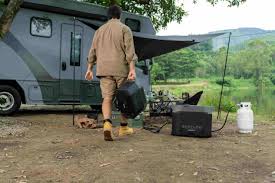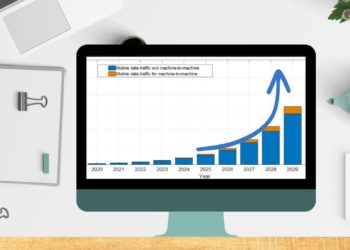Going off-grid sounds great — no monthly bills, no humming pylons, no relying on systems you’ve got no control over. For some, it’s a choice: a smallholding in the hills, a boat moored up on a quiet stretch of canal, maybe even a glamping site you’re running on your own land. For others, it’s not really a choice at all — they’re just living somewhere the grid doesn’t quite reach.
Whatever the reason, one thing stays the same. You still need power. Whether it’s for lights, a fridge, charging tools, or just getting a decent cup of tea, electricity is still part of the deal. And when the sun doesn’t shine and the wind dies down — because, let’s be honest, that happens more than people like to admit — you need a backup plan. That’s where a generator comes in.
Off-grid generators aren’t just for emergencies. They’re often a central part of how people live and work without mains electricity. But not all generators are the same, and if you pick the wrong one, you’ll end up burning through fuel, listening to a racket, or worse — stuck in the dark with a machine that won’t start.
What Does “Off-Grid” Actually Mean?
People throw the term around, but it’s simple: if you’re off-grid, you’re not connected to the national electricity network. No power lines coming in. No utility bill landing through the letterbox. That might mean a remote cottage, a seasonal cabin in the woods, a van conversion, or even a field where you’re building something from scratch.
Sometimes it’s temporary — like on a construction site — other times it’s long-term. Either way, being off-grid doesn’t mean you can go without electricity. It just means you’ve got to make your own.
Most folk turn to renewables first. Solar panels are the go-to for lots of setups, with maybe a wind turbine thrown in too. But the UK isn’t exactly sunny all year round, and wind? Well, it’s either not blowing or trying to rip the roof off. That’s why most off-grid homes and businesses need a generator too — something that kicks in when nature doesn’t deliver.
Why Use an Off-Grid Generator?
There’s a reason most off-grid setups include a generator. Here’s what they bring to the table:
Power when you actually need it – Doesn’t matter if it’s 2am in winter, you press the button, and it works.
Back-up for solar or battery systems – Keeps the lights on when your batteries run low or the inverter gives up.
Portable and flexible – Can be used anywhere you can get it to, as long as there’s fuel and ventilation.
You choose the size – From a small one to run a few lights and a laptop, to larger models that’ll power tools, heaters, even a workshop.
A generator won’t replace renewables, but it’ll make the whole system reliable — especially through a British winter.
Types of Off-Grid Generators
There’s more than one type of generator, and what works for one setup might be totally wrong for another.
1. Diesel Generators
Strong, reliable, and built for heavy use. These are the sort you’ll see on farms or big building sites. Great for people running larger setups or who use a lot of power regularly.
Pros:
Long-lasting
Cheaper to run over time
Can handle big loads
Cons:
Louder than others
More fumes
Bigger and heavier
2. Petrol Generators
Usually cheaper to buy and more portable. Better for occasional use or smaller needs, like a weekend cabin or backup for a van setup.
Pros:
Lower cost upfront
Easy to carry or move
Widely available fuel
Cons:
Not as fuel-efficient
Not built for long hours every day
3. LPG (Gas) Generators
Runs on Liquid Petroleum Gas. Cleaner and quieter than petrol or diesel. Some can switch between LPG and petrol (dual-fuel), which is handy.
Pros:
Low emissions
Quieter running
Can be used in semi-enclosed areas
Cons:
Fuel harder to find in some areas
Bulk storage needed if you use it regularly
4. Hybrid Generators
These combine fuel-powered engines with solar or battery storage. Usually found in setups where renewable energy is the priority, but a generator is still needed to fill the gaps.
Pros:
Lower running costs
Better for the environment
Can integrate into solar/wind systems
Cons:
More complex to set up
Expensive to buy at the start
Choosing What’s Right for You
To pick the right generator, you’ve got to think beyond just “how much does it cost?” Here are some real-world questions to ask yourself:
What are you powering?
List out everything. Kettle, fridge, water pump, phone chargers, router. Look at the wattage. Don’t forget that some appliances take more power to start than to run (fridges and pumps especially).
How often will you use it?
If you’re running it daily, get something fuel-efficient that’s built to last. If it’s just a fallback now and then, you don’t need to go top of the line.
What fuel can you store safely?
Diesel stores well. Petrol doesn’t like sitting around. LPG is clean but needs proper storage tanks. If you’re in a remote area, think about what’s actually available.
How noisy is it?
If it’s near where people are sleeping or you’re running a guest business like glamping, get the quietest option you can afford.
Will it work with your other systems?
Some generators are designed to kick in when solar runs out. Others aren’t. If you’ve got panels and batteries already, make sure your generator plays nicely with them.
Features Worth Having
Not every generator comes with these, but here are a few extras that might be worth paying for:
Auto-start – Fires up when your power drops without you lifting a finger.
Mobile app monitoring – Handy if it’s installed out of sight.
Eco mode – Uses less fuel when demand is low.
Weatherproof casing – Especially important if it’s outdoors year-round.
Low-oil shutdown – Stops damage before it starts.
Don’t Forget Maintenance
Generators aren’t fit-and-forget. They need looking after:
Keep oil topped up
Check air filters now and then
Run it every so often, even if you’re not using it
Store fuel properly — especially in winter
Service it yearly if it’s part of a system you rely on
A generator that’s ignored will fail you when you need it most.
Working with Renewables
Most off-grid folk don’t rely on generators alone. The best setups use solar or wind to take care of day-to-day power, with the generator as backup.
Solar charges the batteries when it can
You use stored power as long as it lasts
The generator steps in when the batteries dip too low
That way, you’re burning less fuel, making less noise, and saving money in the long run.
Final Thoughts
You don’t have to be “on the grid” to live comfortably. With the right generator, you’ve got a fallback you can count on — even when the weather doesn’t play ball or your solar system runs out of juice. Pick one that fits your life, not just your budget, and it’ll quietly keep things ticking for years.
Whether you’re building something from the ground up or just need a bit of peace of mind during winter storms, a good off-grid generator is one bit of kit you won’t regret owning. Contact us to learn more information.











































































